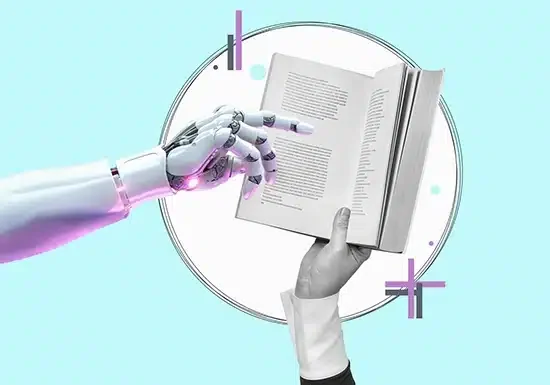AI to Tackle Inequality in the Classroom
Updated: June 19, 2024
Published: January 31, 2024

A lot has been written on the dangers of AI propagating bias because it constructs information using phrases, words, and images that have a statistically significant prevalence on the web., For example, when asked to produce images of certain professions, AI will tend to scrape off-the-net harmful stereotypes on race, gender, and age. There is little scope for nuance in these kinds of new web mechanisms.
Trying to undo this, what is known as debiasing is, as you might imagine, incredibly difficult as it requires a very high level of data science proficiency.
As we live in the world of the search engine, ChatGPT, and other algorithmic meaning-makers, it is important to teach students to nuance their searches and, more critically, to be aware of the way that the information they receive will be constructed, allowing them to look at it with discernment.
However, concerning the broader question of inequality, is AI all bad or could there be something good about it? Interestingly, a 2023 study conducted at MIT showed that “inequality between workers decreases, as ChatGPT compresses the productivity distribution by benefiting low-ability workers more” whereas a 2023 study from the National Bureau of Economic Research showed that the use of Generative AI resulted in a “34% improvement for novice and low-skilled workers but with minimal impact on experienced and highly skilled workers”.
“The times, they are-a-changing” as Bob Dylan sang many moons ago: access to powerful technology levels the playing field and can reduce, not exacerbate inequalities, at least regarding work skill proficiency. It’s important to remember that work skill proficiency is something that develops over time through exposure to professional circumstances, so when a group has been historically occluded from such environments, it may be more difficult to perform quickly alongside historically privileged groups. However, Generative AI is a game-changer in this area.
What will it mean for the future of human talent in the workplace? No doubt there will be other strains of performance and activity that will differentiate individuals, possibly those that are impossible to automate: interpersonal skills such as teamwork, collegiality, kindness, good listening, and responsiveness.
The implications for education are that we need to reinforce that which makes us human and not that which can be perpetuated by an algorithm while recognizing the tremendous opportunities that Generative AI is creating for millions of people across the planet. This is one of the reasons why, if there is a divide that will increase inequalities and needs to be eliminated, it is the digital divide.
